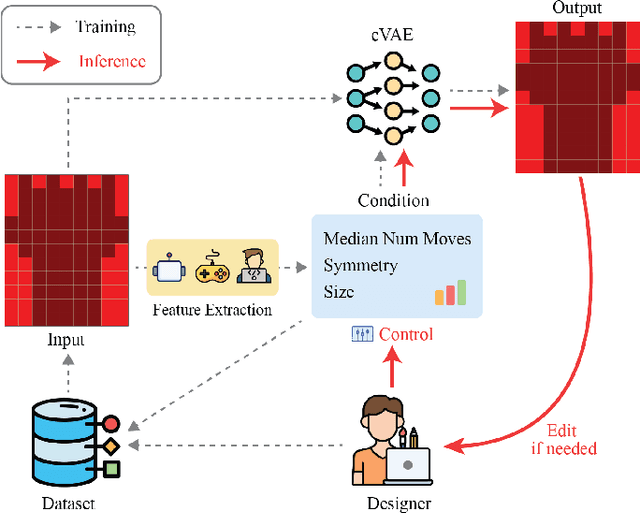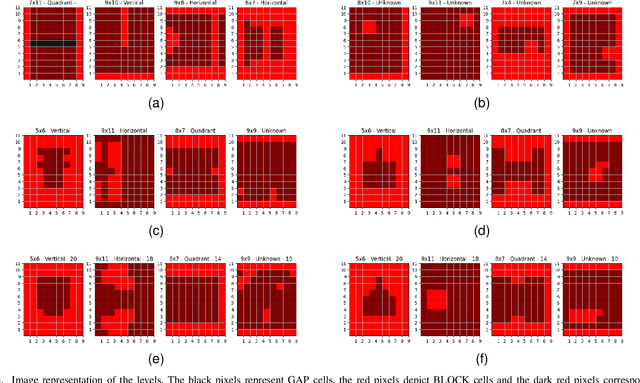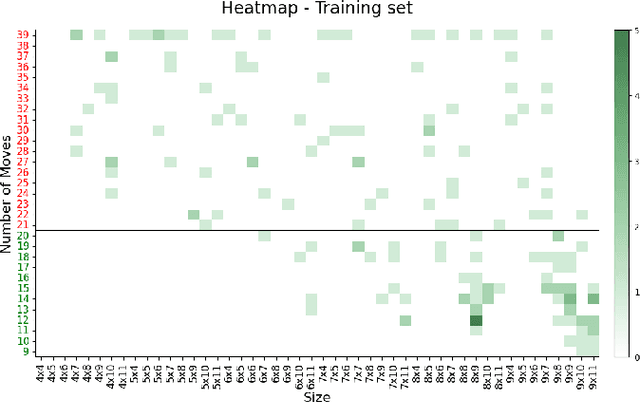Jonas Gillberg
Improving Conditional Level Generation using Automated Validation in Match-3 Games
Sep 10, 2024



Abstract:Generative models for level generation have shown great potential in game production. However, they often provide limited control over the generation, and the validity of the generated levels is unreliable. Despite this fact, only a few approaches that learn from existing data provide the users with ways of controlling the generation, simultaneously addressing the generation of unsolvable levels. %One of the main challenges it faces is that levels generated through automation may not be solvable thus requiring validation. are not always engaging, challenging, or even solvable. This paper proposes Avalon, a novel method to improve models that learn from existing level designs using difficulty statistics extracted from gameplay. In particular, we use a conditional variational autoencoder to generate layouts for match-3 levels, conditioning the model on pre-collected statistics such as game mechanics like difficulty and relevant visual features like size and symmetry. Our method is general enough that multiple approaches could potentially be used to generate these statistics. We quantitatively evaluate our approach by comparing it to an ablated model without difficulty conditioning. Additionally, we analyze both quantitatively and qualitatively whether the style of the dataset is preserved in the generated levels. Our approach generates more valid levels than the same method without difficulty conditioning.
* 10 pages, 5 figures, 2 tables
Technical Challenges of Deploying Reinforcement Learning Agents for Game Testing in AAA Games
Jul 19, 2023Abstract:Going from research to production, especially for large and complex software systems, is fundamentally a hard problem. In large-scale game production, one of the main reasons is that the development environment can be very different from the final product. In this technical paper we describe an effort to add an experimental reinforcement learning system to an existing automated game testing solution based on scripted bots in order to increase its capacity. We report on how this reinforcement learning system was integrated with the aim to increase test coverage similar to [1] in a set of AAA games including Battlefield 2042 and Dead Space (2023). The aim of this technical paper is to show a use-case of leveraging reinforcement learning in game production and cover some of the largest time sinks anyone who wants to make the same journey for their game may encounter. Furthermore, to help the game industry to adopt this technology faster, we propose a few research directions that we believe will be valuable and necessary for making machine learning, and especially reinforcement learning, an effective tool in game production.
 Add to Chrome
Add to Chrome Add to Firefox
Add to Firefox Add to Edge
Add to Edge